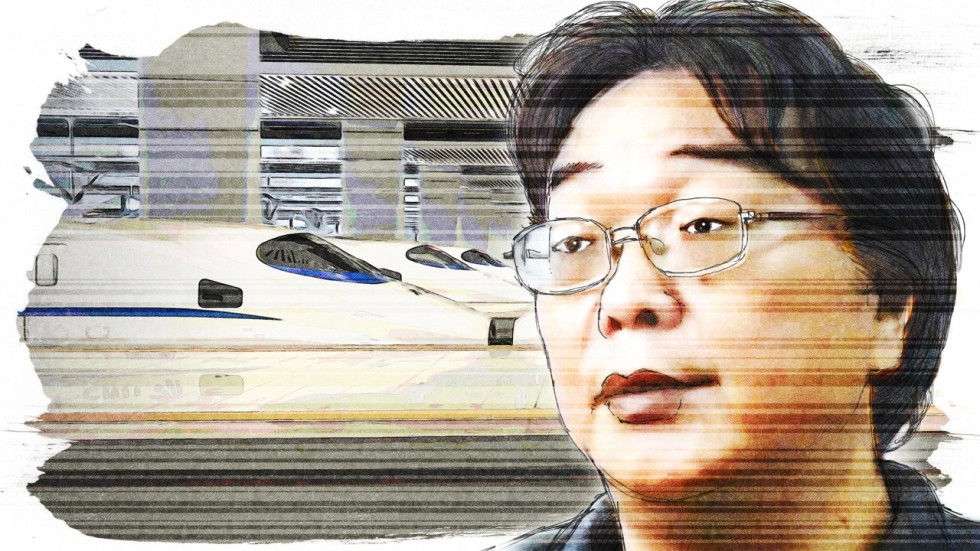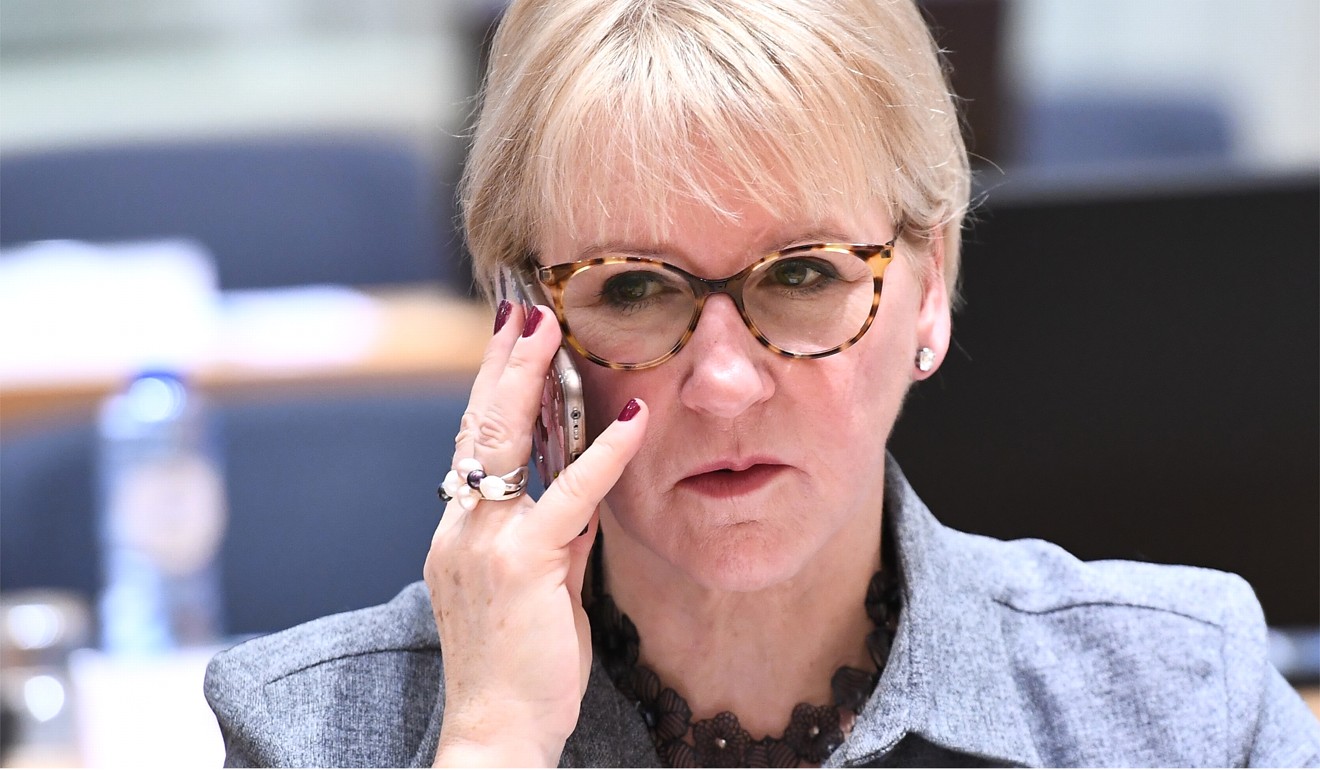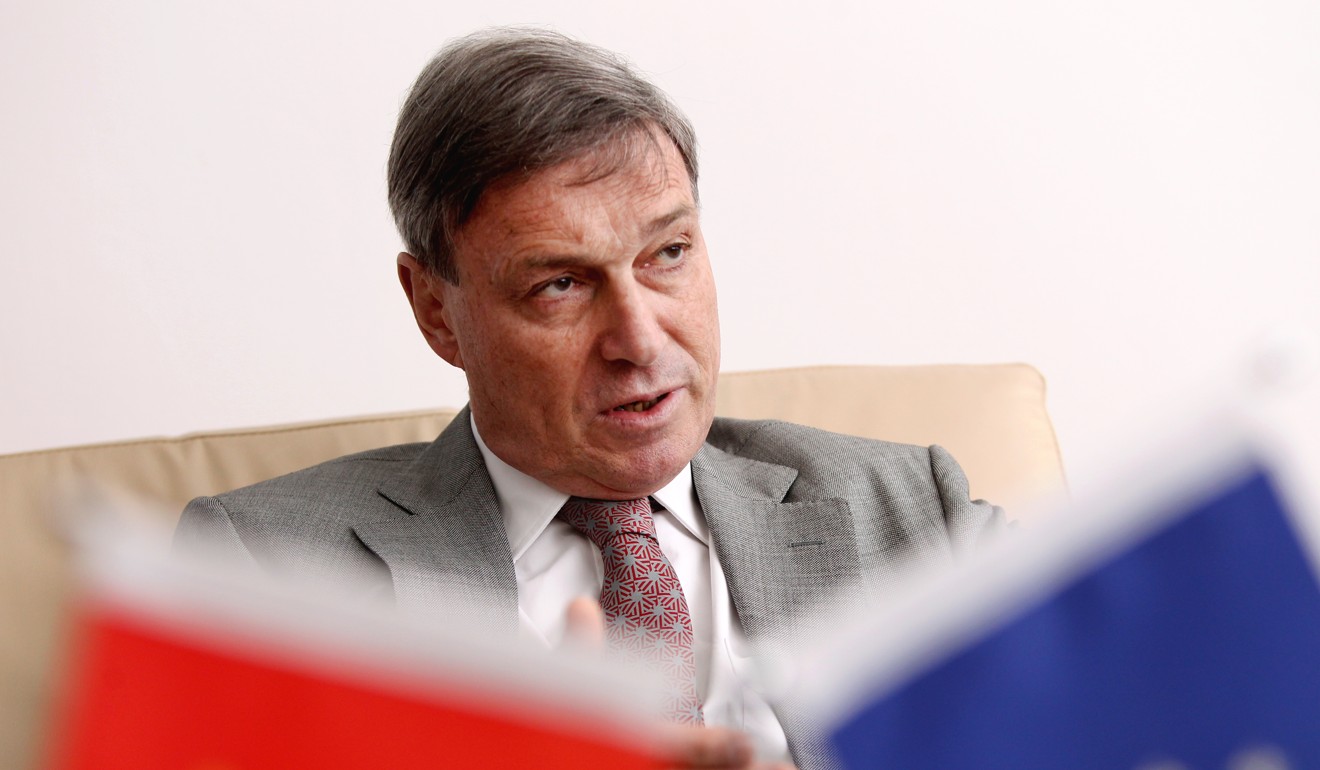By Oliver Chou, Mimi Lau and Catherine Wong

China snatched a Swedish citizen and former Hong Kong-based bookseller to prevent him from telling his story before a trial over his alleged involvement in “illegal book trading” wraps up, his former employer said, citing a source.
Publisher Lau Tat-man, founder and chief editor of Ha Fai Yi Publication, where Gui Minhai was a freelance writer and editor for seven years, believes Gui’s dramatic arrest on Saturday at a train station near Beijing – under the watch of Swedish diplomatic staff – was a bid to stop him from leaving the country.
“The case of Causeway Bay Books has yet to be settled in an official trial, so Gui heading towards Beijing with Swedish diplomats could have been part a plan to get him out of the country,” Lau, citing a reliable source, told the South China Morning Post.
Gui was one of five people who went missing from 2015, all of whom were associated with the bookshop that released titles critical of Beijing.
Gui was in Thailand when he disappeared for the first time, then resurfaced in custody across the border.
He was freed from prison in October on a drink-driving charge.
Lau could not confirm whether Gui was released on the condition that he stay within the city of Ningbo, in Zhejiang, but he said “I’m sure there are conditions attached to his release”.
“Gui has stayed low-profile since his release in October and the only person he’s had contact with is a long-time acquaintance in Shanghai,” he said.
The European Union joined Sweden’s call on Wednesday for the immediate release of Gui, which Beijing said was “unreasonable”.
The missing booksellers case made international headlines at the time, and although not much had been heard about the booksellers recently until Gui was taken away on Saturday, Lau said the authorities had continued to keep him under tight surveillance.
“Lee Po has stayed quiet and Lui Por and Cheung Chi-ping are in their Shenzhen homes and are not free to travel – that shows the officials are still worried that these people will speak out like Lam Wing-kee did once they are set free,” he said, referring to the bookstore manager who revealed details of his detention on the mainland when he returned to Hong Kong.
Lau called on the Swedish government to take the lead for the West and stand firm on international law and human rights.
“Many Western countries have kowtowed to China because of economic gains – it’s time for the West to wake up,” he said.

Swedish Minister for Foreign Affairs Margot Wallström said on Tuesday that Gui “was at the time of his arrest in the company of diplomatic staff, who were providing consular help to a Swedish citizen in need of medical care”.
“This was perfectly in line with basic international rules giving us the right to provide our citizens with consular support,” she said in a statement.
“The Chinese authorities have assured us on numerous occasions that Mr Gui Minhai has been free since his release having served a sentence for a traffic-related offence, and that we can have any contact we wish with our fellow citizen.”
In Beijing on Wednesday, the European Union’s ambassador to China Hans Dietmar Schweisgut said the EU “fully supports” Sweden’s efforts to resolve the issue with China, Reuters reported.

Magnus Fiskesjö, an associate professor at Cornell University who was a Swedish diplomat in Beijing and has known Gui since the 1980s, said the incident was “not only wrong but also damaging to China’s international image”.
“When China disrespects our country by mistreating a citizen of ours, we have to stand up for our citizen – there is no other option for it,” he said.
“It has outraged people and goes beyond the bounds of international law in a repeated and offensive manner. When people hear about this news in Sweden, they feel that this is China bullying a small country like us.”
Fiskesjö said the Swedish embassy and consulates in China had sought access to Gui since 2015 on multiple occasions since he was first detained but “with long delays and long waits”.
Lau could not confirm whether Gui was released on the condition that he stay within the city of Ningbo, in Zhejiang, but he said “I’m sure there are conditions attached to his release”.
“Gui has stayed low-profile since his release in October and the only person he’s had contact with is a long-time acquaintance in Shanghai,” he said.
The European Union joined Sweden’s call on Wednesday for the immediate release of Gui, which Beijing said was “unreasonable”.
The missing booksellers case made international headlines at the time, and although not much had been heard about the booksellers recently until Gui was taken away on Saturday, Lau said the authorities had continued to keep him under tight surveillance.
“Lee Po has stayed quiet and Lui Por and Cheung Chi-ping are in their Shenzhen homes and are not free to travel – that shows the officials are still worried that these people will speak out like Lam Wing-kee did once they are set free,” he said, referring to the bookstore manager who revealed details of his detention on the mainland when he returned to Hong Kong.
Lau called on the Swedish government to take the lead for the West and stand firm on international law and human rights.
“Many Western countries have kowtowed to China because of economic gains – it’s time for the West to wake up,” he said.

Swedish Minister for Foreign Affairs Margot Wallström said on Tuesday that Gui “was at the time of his arrest in the company of diplomatic staff, who were providing consular help to a Swedish citizen in need of medical care”.
“This was perfectly in line with basic international rules giving us the right to provide our citizens with consular support,” she said in a statement.
“The Chinese authorities have assured us on numerous occasions that Mr Gui Minhai has been free since his release having served a sentence for a traffic-related offence, and that we can have any contact we wish with our fellow citizen.”
In Beijing on Wednesday, the European Union’s ambassador to China Hans Dietmar Schweisgut said the EU “fully supports” Sweden’s efforts to resolve the issue with China, Reuters reported.

Magnus Fiskesjö, an associate professor at Cornell University who was a Swedish diplomat in Beijing and has known Gui since the 1980s, said the incident was “not only wrong but also damaging to China’s international image”.
“When China disrespects our country by mistreating a citizen of ours, we have to stand up for our citizen – there is no other option for it,” he said.
“It has outraged people and goes beyond the bounds of international law in a repeated and offensive manner. When people hear about this news in Sweden, they feel that this is China bullying a small country like us.”
Fiskesjö said the Swedish embassy and consulates in China had sought access to Gui since 2015 on multiple occasions since he was first detained but “with long delays and long waits”.
Aucun commentaire:
Enregistrer un commentaire